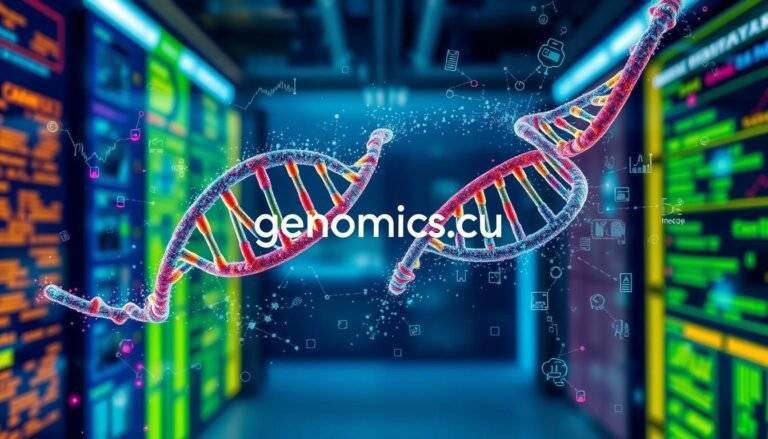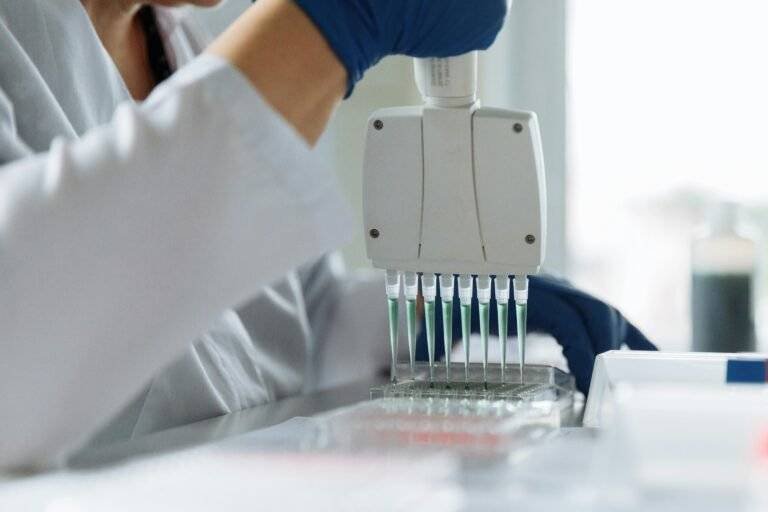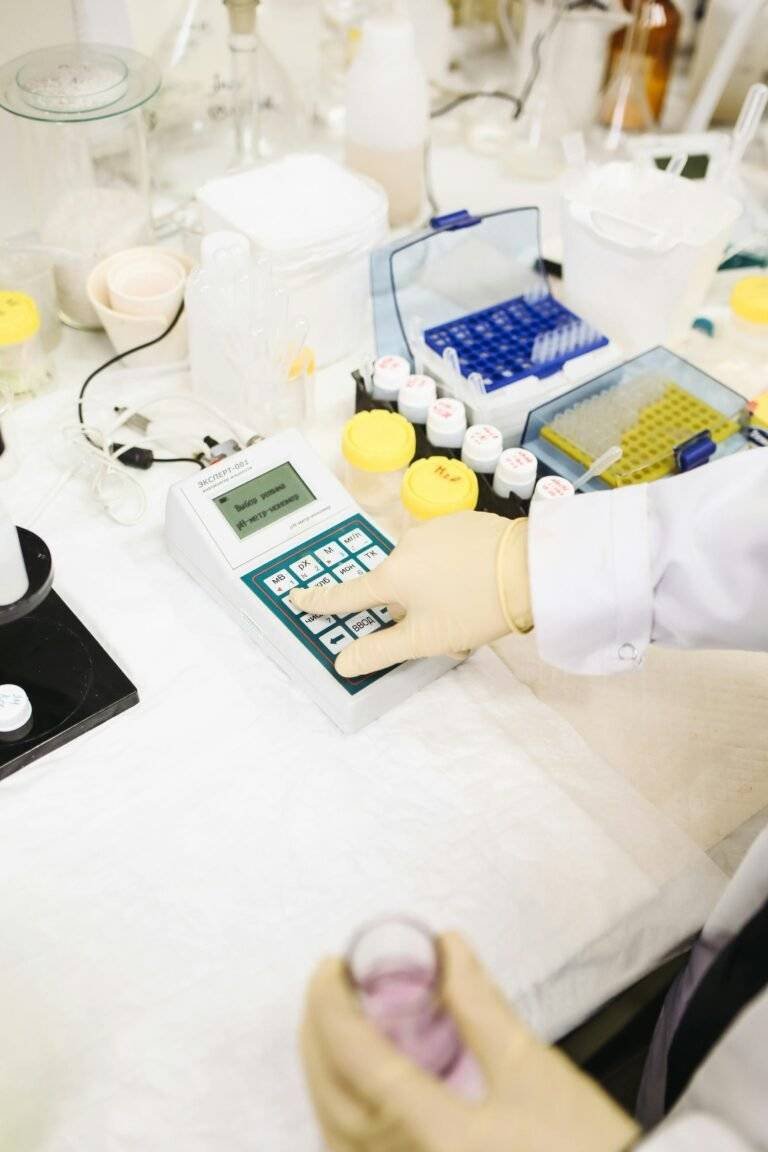Is Genomelink Safe? DNA Testing Security Explained
Genomelink brings DNA insights to your fingertips, but how safe is your genetic information? This platform offers personalized DNA analysis for over 352 traits, categorized into 5 sections for easy understanding1. Let’s dive into the world of DNA data protection and genetic information security to see if Genomelink truly prioritizes your privacy.
At its core, Genomelink uses HIPAA-grade security to safeguard your DNA data on its servers2. This level of protection is crucial, given that over 50 million DNA test users are part of their database1. The platform’s approach to Genomelink privacy is unique – they require explicit opt-in consent for every partnership, unlike other DNA companies that often ask for a one-time blanket approval2.
What sets Genomelink apart is its commitment to user control. You can delete your data at any time, and the company promises not to share information with public databases, insurance companies, or employers without your explicit consent2. Even when it comes to law enforcement, Genomelink only provides data if required by a valid court order, subpoena, or search warrant2.
While Genomelink offers exciting features like weekly trait updates and access to one of the largest genealogy records databases, it’s their dedication to DNA data protection that truly stands out1. By following HIPAA requirements and collaborating with reputable research partners like Stanford and UC Berkeley, Genomelink strives to balance scientific advancement with user privacy1.
Key Takeaways
- Genomelink uses HIPAA-grade security for DNA data protection
- Users have full control over their data, including deletion options
- Explicit consent is required for each data-sharing partnership
- Law enforcement access is limited to valid legal orders
- The platform balances research collaboration with stringent privacy measures
- Weekly updates provide new insights based on ongoing genetic research
- Users can contribute to genomics research while maintaining control over their data
Overview of Genomelink
Genomelink is a DNA analysis service that offers genetic trait reports through raw DNA data upload. Based in Silicon Valley, this innovative platform provides users with insights into their genetic makeup, focusing on areas like nutrition, personality, and fitness.
What is Genomelink?
Genomelink is a user-friendly DNA analysis service that allows individuals to upload their raw genetic data from popular testing companies like 23andMe, AncestryDNA, and MyHeritage. Upon upload, users receive 25 free trait reports, with options to access over 250 additional reports3.
Key Features of Genomelink
Genomelink stands out with its diverse range of genetic insights. Users can explore ancient ancestry, personalized nutrition advice, and fitness recommendations. The platform offers a tiered pricing structure, including a free tier and a premium subscription at $14 per month for access to 150+ traits3.
| Feature | Details | Price |
|---|---|---|
| Initial Reports | 25 trait reports | Free |
| Premium Subscription | 150+ traits, weekly updates | $14/month |
| Ancient Ancestry Report | Detailed ancestry analysis | $29 |
| Personalized Nutrition Advice | Diet recommendations based on genetics | $24 |
| Personalized Fitness Report | Exercise insights tailored to genetic profile | $39 |
Genomelink’s user-friendly approach and comprehensive reporting have earned it a 4.1-star rating on TrustPilot, with users praising the accuracy of results and regular updates3. The platform’s commitment to privacy is evident in its transparent data policies, ensuring users remain in control of their genetic information.
Understanding DNA Testing Privacy
DNA testing has become increasingly popular, offering insights into ancestry, health, and more. With this rise in genetic testing, the importance of genetic data protection and personal information security has grown exponentially.
Importance of Data Privacy in DNA Testing
DNA data is unique and contains sensitive personal information. The advancements in technology have made DNA sequencing faster and more accessible. It once took a decade and 10 billion dollars to sequence a single person’s DNA, but now companies can sequence important parts of DNA in a few hours4.
This accessibility has led to millions of users taking advantage of DNA testing, resulting in massive databases to hold DNA data4. The creation of these extensive databases raises significant DNA privacy concerns. For instance, an MIT scientist could identify individuals behind five supposedly anonymous genetic samples within a day5.
Potential Risks of DNA Sharing
Sharing DNA data comes with potential risks. Some companies sell anonymized and aggregated data to third parties for research or product development. 23andMe has sold data to at least 14 outside pharmaceutical firms, while Ancestry.com has a formal data-sharing agreement with a biotech firm5.
Law enforcement agencies have successfully obtained warrants for DNA evidence from Ancestry.com in criminal cases5. The Golden State Killer was apprehended based on DNA evidence by matching DNA from a crime scene to a DNA database4. These cases highlight the need for robust genetic data protection measures.
Genetic discrimination by insurance companies and employers based on genetic information raises concerns about privacy and discrimination. While the Genetic Information Nondiscrimination Act (GINA) prevents insurance providers and employers from taking action based on genetic testing information, concerns persist regarding potential access to DNA data by medical and life insurance providers45.
| Risk | Impact |
|---|---|
| Data breaches | Exposure of sensitive genetic information |
| Unauthorized access | Misuse of personal genetic data |
| Law enforcement use | Privacy concerns and potential misuse |
| Third-party data sharing | Loss of control over personal genetic information |
Security Measures Implemented by Genomelink
Genomelink takes user privacy seriously, implementing robust security measures to protect sensitive genetic information. The company’s approach to data protection focuses on DNA data encryption and user data control, ensuring a secure environment for genetic analysis.
Data Encryption Protocols
Genomelink employs advanced DNA data encryption techniques to safeguard user information. The company utilizes HIPAA-grade security protocols on its servers, providing a high level of protection for genetic data. This commitment to HIPAA compliance demonstrates Genomelink’s dedication to maintaining industry-standard security practices.
User Consent and Control
Genomelink prioritizes user data control by implementing strict consent procedures. Users must provide explicit opt-in consent for each partnership and project, ensuring transparency in data usage. This approach allows individuals to maintain control over their genetic information and how it’s utilized6.
Key features of Genomelink’s user control measures include:
- Option to delete personal data from servers at any time
- No use or sale of DNA data without explicit consent
- Transparent data handling practices
Genomelink offers various trait reports and features, with pricing options to suit different needs. Users can access 25 trait reports for free upon uploading their DNA data, with additional reports available through subscription plans or individual purchases7.
“Genomelink encourages users to consult with doctors, genetic counselors, or other health care professionals for understanding genetic testing results or making informed decisions.”
By implementing these security measures, Genomelink aims to provide a safe and trustworthy platform for genetic analysis while respecting user privacy and data rights.
Comparing Genomelink to Other DNA Services
When exploring DNA testing companies comparison, Genomelink stands out as a unique player in genetic analysis services. Unlike traditional providers, Genomelink focuses on raw data analysis rather than offering DNA testing kits.
Genomelink vs. 23andMe
Genomelink offers a broader spectrum of trait reports compared to 23andMe. With over 200 traits tested across categories like Personality, Intelligence, and Fitness, Genomelink provides a comprehensive analysis8. Users can access 30 traits for free, with an Unlimited Monthly Plan at $14 for full access8.
Genomelink vs. AncestryDNA
While AncestryDNA boasts a massive database of 22 million people for ancestry matching, Genomelink offers unique features like whole-genome sequencing and chromosome-level ancestry analysis8. Genomelink provides 12 ancestry reports, including Global Ancestry and Ancient Bloodlines8.
| Feature | Genomelink | AncestryDNA | 23andMe |
|---|---|---|---|
| DNA Testing Kit | No | Yes | Yes |
| Raw Data Analysis | Yes | Limited | Limited |
| Trait Reports | 250+ | Limited | Limited |
| Ancestry Database | Smaller | 22 million | Large |
| Unique Features | Whole-genome sequencing, Chromosome-level ancestry | Family tree building | Health predisposition reports |
Genomelink’s user-friendly dashboard allows individuals to examine various trait analyses and access personalized genetic trait information9. With a TrustPilot rating of 4.1 stars, users praise the accuracy of results and regular updates provided by the service9.
User Experiences and Reviews
Genomelink customer reviews offer valuable insights into DNA testing experiences. Users appreciate the platform’s ability to provide unique genetic analysis feedback. Let’s explore the positive aspects and common concerns reported by Genomelink users.
Positive Feedback on Security
Many users express satisfaction with Genomelink’s security measures. The platform’s transparency and data control options receive praise. Customers like Paula Elizabeth have shared positive experiences, discovering new insights not available from other DNA services10.
Brandon Nakasato, another satisfied user, highlights the opportunity to explore his African heritage and identify genetic predispositions to chronic illnesses through Genomelink10. This demonstrates the platform’s ability to provide comprehensive genetic analysis feedback.
Common Concerns from Users
While many users report positive DNA testing experiences, some concerns have been raised. The accuracy of certain traits has been questioned by some users. According to user feedback, the five least accurate traits are acne vulgaris, alcohol drinking behavior, peach allergy, word reading ability, and views on environmentalism11.
It’s important to note that 74.3% of Genomelink users believe nearly three-quarters of the 300 traits provided are accurate11. For 144 traits, a large majority of users (>60%) find the results accurate11. These statistics suggest that while concerns exist, overall user satisfaction remains high.
| Aspect | User Feedback |
|---|---|
| Overall Trait Accuracy | 74% of traits voted accurate by majority |
| Highly Accurate Traits | 144 traits with >60% user agreement |
| Inaccurate Traits | Only 1.67% voted inaccurate |
| Continuous Improvement | Regular updates for enhanced accuracy |
Genomelink addresses these concerns by offering continuous DNA discovery, allowing for updated traits and improved accuracy over time11. This commitment to ongoing improvement enhances the overall DNA testing experience for users.
Regulatory Compliance and Certifications
DNA testing regulations and genetic data protection laws play a crucial role in safeguarding consumer privacy. As the global direct-to-consumer genetic testing market grows rapidly, projected to reach a compound annual growth rate of 19.5% from 2021 to 2027, the need for robust regulatory frameworks becomes increasingly important12.
GDPR and its Impact on Genetic Data
The General Data Protection Regulation (GDPR) has significantly influenced how companies handle genetic data in the European Union. This regulation emphasizes user control over personal data, requiring companies to provide transparency about data usage and allow users to request data deletion13. Genomelink aligns its privacy policies with GDPR requirements, ensuring compliance with these stringent genetic data protection laws.
Other Relevant Privacy Regulations
In the United States, HIPAA compliance is a key factor in DNA testing security. Genomelink adheres to HIPAA regulations, implementing strict data security measures. The regulatory landscape for DNA testing varies globally, with some countries imposing restrictions or bans on direct-to-consumer genetic testing due to ethical, legal, or social concerns12.
The industry recognizes the importance of self-regulation and consumer education. Companies like Genomelink strive to maintain compliance with evolving DNA testing regulations while providing valuable insights to users. As the field advances, with technologies like whole-genome sequencing and artificial intelligence, regulatory frameworks continue to adapt to ensure robust genetic data protection1213.
What Happens to Your Data?
Understanding genetic data usage is crucial when considering DNA testing services. Genomelink provides a range of features centered around DNA information storage and analysis.
How Genomelink Uses Your DNA Data
Genomelink employs your genetic information to generate trait reports. Users can access 25 free trait reports by uploading their raw DNA data from compatible services like 23andMe, AncestryDNA, or MyHeritage1415. The platform’s database offers over 100 trait reports, curated from extensive research studies15. For $14 per month, subscribers gain access to 150+ traits and receive a new report weekly1415.
Data Retention Policies
Genomelink prioritizes user privacy in its DNA information storage practices. The company commits to not using or selling DNA data for secondary purposes without explicit consent15. Users have data deletion options, allowing them to request the removal of their information from Genomelink’s servers at any time1415.
| Security Measure | Description |
|---|---|
| HIPAA Compliance | Protected health information handling |
| Data Usage Policy | No secondary use or sale without consent |
| User Control | Option to delete data anytime |
While Genomelink offers valuable insights, users should stay informed about genetic data usage policies to make the best decisions regarding their DNA information.
How to Protect Your DNA Information
Protecting your genetic data is crucial in the era of DNA testing. This section offers genetic data protection tips and highlights the importance of DNA testing safety.
Tips for Safe DNA Testing
When using DNA testing services, it’s essential to implement strong security measures. Create a unique, complex password for your account. Be cautious about sharing your genetic information and consider the potential risks before consenting to data sharing or research participation.
Download and securely store your raw DNA data. This precaution ensures you have access to your information even if a company faces issues. For instance, it’s advisable to download your 23andMe raw DNA data file, which typically takes 1-2 days to process after a request is made16.
Importance of Reading Terms and Conditions
Privacy policy awareness is key when using DNA testing services. Carefully review the company’s privacy policy and terms of service before submitting your sample. Pay attention to data retention policies and deletion options.
Consider the following factors when reviewing a DNA testing company’s policies:
- How your genetic data will be used
- Who has access to your information
- Options for controlling data sharing
- Procedures for data deletion
Remember, companies like Genomelink offer privacy measures where Aggregate Information is separated from Personal Information unless consent is provided17. Understanding these policies helps you make informed decisions about your genetic data.
| Action | Importance |
|---|---|
| Use strong passwords | High |
| Read privacy policies | Critical |
| Control data sharing | Essential |
| Download raw DNA data | Recommended |
Future of DNA Testing Security
The landscape of DNA testing is rapidly evolving, with a strong focus on enhancing genetic privacy innovations and DNA security advancements. As the industry grows, so does the need for robust protection measures to safeguard sensitive genetic information.
Trends in Genetic Data Protection
Recent events have highlighted the critical importance of DNA security. In a notable incident, 23andMe faced a significant data breach affecting 6.9 million users, nearly half of its customer base18. This breach exposed personal information including genetic ancestry results, birth years, and geographical locations18. Such incidents underscore the urgent need for improved security protocols in the future of DNA testing.
Companies like Genomelink are leading the charge in developing secure infrastructures for DNA-powered applications. They aim to provide users with insights into 170+ genetic traits while ensuring data ownership remains with the individual19. This approach reflects a growing trend towards user-centric data control in genetic testing services.
Innovations in DNA Privacy
The future of DNA testing security is likely to see advancements in encryption methods and more granular consent options. Genomelink, for instance, offers trait analysis for non-medical purposes, focusing on preferences, characteristics, and aptitudes20. This targeted approach allows for more controlled data sharing.
Another emerging trend is the use of blockchain technology for secure data storage. This could potentially prevent incidents like the MyHeritage leak in 2018, which compromised 92 million user accounts18. As the industry evolves, we can expect to see more innovative solutions addressing long-term data storage concerns and potential misuse of genetic information.
The DNA testing industry is at a crucial juncture. With increasing awareness about genetic privacy, companies are investing in robust security measures. The goal is to balance the benefits of DNA analysis with stringent privacy protections, ensuring a safer future for genetic testing.
Final Thoughts on the Safety of Genomelink
Genomelink’s safety assessment reveals a mix of strengths and potential concerns. The platform offers robust security measures, including data encryption and user control over information. These features align with industry standards, providing a level of trust for users exploring their genetic makeup.
Weighing Pro and Con Arguments
On the positive side, Genomelink implements HIPAA-grade security protocols and requires explicit consent for data usage. Users can delete their data, which is a crucial privacy feature. Some DNA testing services, like Promethease, automatically delete analysis reports after 45 days and immediately remove genome data for non-account holders21. This trend in the industry shows a growing emphasis on data protection.
Yet, there are drawbacks to consider. The accuracy of genetic reports can vary, and compatibility with raw data from other sources might be limited. It’s worth noting that larger DNA databases, while potentially beneficial, can increase the risk of false positives and strain lab resources22. These factors highlight the need for caution in DNA testing and data sharing.
Recommendations for Potential Users
For those considering genetic analysis, it’s crucial to read privacy policies carefully. Weigh the pros and cons of DNA testing before proceeding. Take advantage of free trait reports offered by services like Genomelink to get a feel for the platform. Remember, some states regulate the sharing of DNA information with open-source databases, so stay informed about your local laws22. By taking these steps, you can make an informed decision about using Genomelink or similar genetic testing services.
Q&A
Is Genomelink safe to use?
Yes, Genomelink is generally considered safe. They use HIPAA-grade security on their servers, require explicit opt-in consent for data usage, and allow users to delete their data at any time. However, as with any DNA testing service, it’s important to understand the potential risks and make informed decisions about sharing your genetic information.
What security measures does Genomelink implement?
Genomelink implements several security measures, including HIPAA-grade security on its servers, explicit opt-in consent requirements for data usage, and the ability for users to delete their data at any time. They also don’t share data with public databases, insurance companies, or employers without explicit consent.
Can I delete my data from Genomelink?
Yes, you can delete your data from Genomelink’s servers at any time. The company provides users with control over their data and respects their right to data deletion.
How does Genomelink compare to other DNA testing services?
Genomelink focuses on raw data analysis rather than providing DNA testing kits. They offer a wider range of trait reports (250+) compared to some competitors and require separate consent for each data-sharing partnership. Unlike 23andMe and AncestryDNA, Genomelink doesn’t have its own DNA database for ethnicity estimates.
What kind of information can I get from Genomelink?
Genomelink provides insights into nutrition, personality, and fitness based on genetic data. They offer over 250 trait reports, including ancient ancestry, nutrition, and fitness analyses. Users receive 25 free trait reports initially, with options for additional paid reports.
Does Genomelink sell my DNA data?
Genomelink does not use or sell DNA data without explicit consent. The company requires opt-in consent for each partnership and project, allowing users to maintain control over their data usage.
Is Genomelink compliant with privacy regulations?
Yes, Genomelink complies with HIPAA regulations for data security and aligns with GDPR requirements. They maintain compliance with evolving genetic data protection laws and provide transparency about data handling practices.
What should I consider before using Genomelink?
Before using Genomelink, carefully read their privacy policies and terms of service. Consider the benefits and risks of DNA sharing, use strong and unique passwords for your account, and take advantage of the free trait reports before committing to paid services. Stay informed about evolving privacy practices in the genetic testing industry.
How accurate are Genomelink’s reports?
User experiences with Genomelink’s accuracy vary. While many users appreciate the accuracy of results, some have reported inaccuracies in ancestry reports compared to other services. It’s important to view the results as informative insights rather than definitive medical or ancestry information.
What happens to my DNA data after I upload it to Genomelink?
Genomelink uses your DNA data to provide trait analysis reports. They may share aggregate information with third-party subprocessors and research partners with your consent. You can request data deletion at any time, and the company retains data only as long as necessary to provide services and comply with legal obligations.






